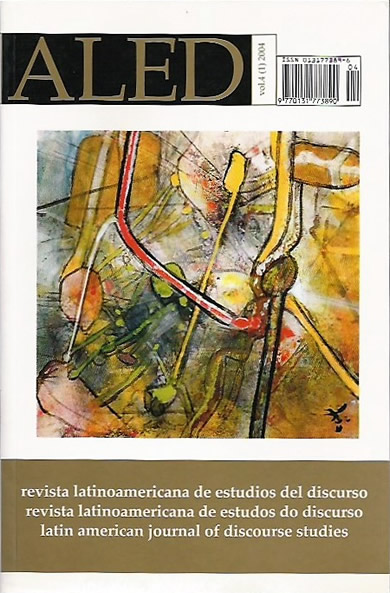Los relatos tradicionales como vehículos de valores éticos
Keywords:
traditional tales. narrative. mental activity. ethical values. emotions.conceptual and value systems.Abstract
This paper starts from Marta Nussbaum´s reflection regarding literary imagination and moral reasoning in relation with how some novels are adequate vehicles for ethical values, and moves to the point of how traditional narratives can also be conveyors of the same values. The question asked from the viewpoint of cognitive linguistics is: Which mechanisms make possible the operation of traditional narratives as vehicles of ethical values? Narrative as a mental activity responsible for organizing daily experience and emotions as a correlate of cognitive systems, meet in the modes of interpretation of tales, while we ascribe values to the facts which make them up, integrating, on their part, value systems from which we again interpret other narrations. These systems, besides, also become models for behavior. We illustrate these premises through the interpretation of a traditional Sufi tale.
Downloads
References
BAJTIN, M. M. (1982). Estética de la creación verbal. Madrid: Siglo XXI Editores.
BRUNER, J. (1990). Acts of meaning.Cambridge &Londres: Harvard University Press.
BRUNER, J. (1986). Realidad mental y mundos posibles. Barcelona: Gedisa.
FAUCONNIER, G. (1997). Mapping in though and lenguaje. Cambridge: Cambridge University Press.
GEERTZ, C. (1973). La interpretación de las culturas. Barcelona: Gedisa.
JOHNSON, M. (1987). The Body in the Mind. Chicago: The University of Chicago Press.
Kiczkovsky, S. (2001). Narración y tradición. En Elementos, Ciencia y Cultura. Nº 41. Vol.8. Pp. 57-62. México: Universidad Autónoma de Puebla.
LAKOFF, G. (1993). The Contemporary Theory of Metaphor. En Ortony, A. (comp.). Cambridge: Cambridge University Press. Pp. 202-250.
LAKOFF, G. & MARK, J. (1986). Las metáforas de la vida cotidiana. Madrid: Cátedra.
LAKOFF, G. & JOHNSON, M. (1999). Philosophy in the Flesh. New York: Basic Books.
NUSSBAUM, M. (1990). Love is Knowledge. Essays on Philosophy and Literature.New York/Oxford: Oxford University Press.
ORTONY, A., CLORE, G. & COLLINS A. (1996). La estructura cognitiva de las emociones. Madrid: Siglo XXI editores.
RICOEUR, P. (1987). Tiempo y narración. Madrid:Ediciones Cristiandad.
SHAH, I. (1988). Cuentos de los derviches.México: Paidós Orientalia.
TURNER, M. & LAKOFF, G, (1989). More than Cool Reason:a field guide to poetic metaphor. Chicago and London: The University of Chicago Press.
TURNER, M. (1996). The Literary Mind. Nueva York & Oxford: Oxford University Press.
Downloads
Published
How to Cite
Issue
Section
License

This work is licensed under a Creative Commons Attribution-NonCommercial-NoDerivatives 4.0 International License.
The authors retain the copyright and guarantee RALED the right to be the first publication of the work as well as a Creative Commons Attribution License that allows others to share the work with recognition of authorship and the initial publication in this journal.




